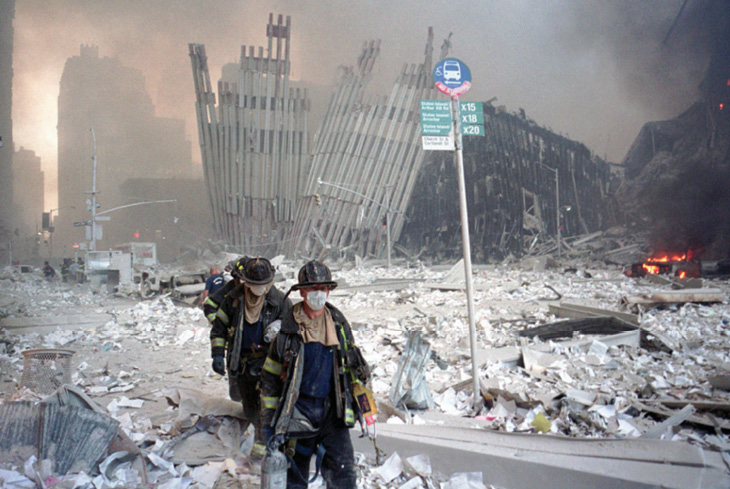 Photo by Neville Elder/CORBIS/Corbis via Getty Images
Photo by Neville Elder/CORBIS/Corbis via Getty Images
A study of nearly 10,000 New York City firefighters has found that exposure to 9/11 World Trade Center (WTC) dust is associated with a significantly increased long-term risk of cardiovascular disease (CVD). The study was conducted by researchers at Einstein, Montefiore, and the Fire Department of the City of New York (FDNY).
Firefighters who arrived first at the WTC site on or after Sept. 11, 2001—when the airborne dust was thickest—have a 44% increased risk of CVD compared with those who arrived later in the day. The study was published in September 2019 in JAMA Network Open.
“The increase in risk was significant, even taking into account known CVD risk factors such as age, hypertension, elevated cholesterol, diabetes, and smoking,” says study leader David J. Prezant, M.D., professor of medicine at Einstein, a pulmonary disease specialist at Montefiore, and chief medical officer of the FDNY.
This study’s finding of an increased risk of CVD with WTC exposure—as well as the researchers’ earlier studies identifying an increased risk for autoimmune rheumatologic diseases and for a blood-cancer precursor that can lead to the cancer multiple myeloma—“highlights the need to add these health conditions to the list of WTC-related diseases that are coverable under the James L. Zadroga 9/11 Health and Compensation Act,” Dr. Prezant adds.
Other studies have linked both acute and prolonged exposure to air pollution to CVD. The authors noted that the firefighters’ exposure to dust and products of combustion could have triggered persistent disease processes involving chronic inflammation that increased their risk for CVD years later.
“Our results emphasize why it is crucial to monitor the long-term health of anyone exposed to massive environmental disasters, even many years after the event,” says co–lead author Rachel Zeig-Owens, Dr.P.H., research assistant professor of epidemiology & population health at Einstein and an epidemiologist at Montefiore and the FDNY.